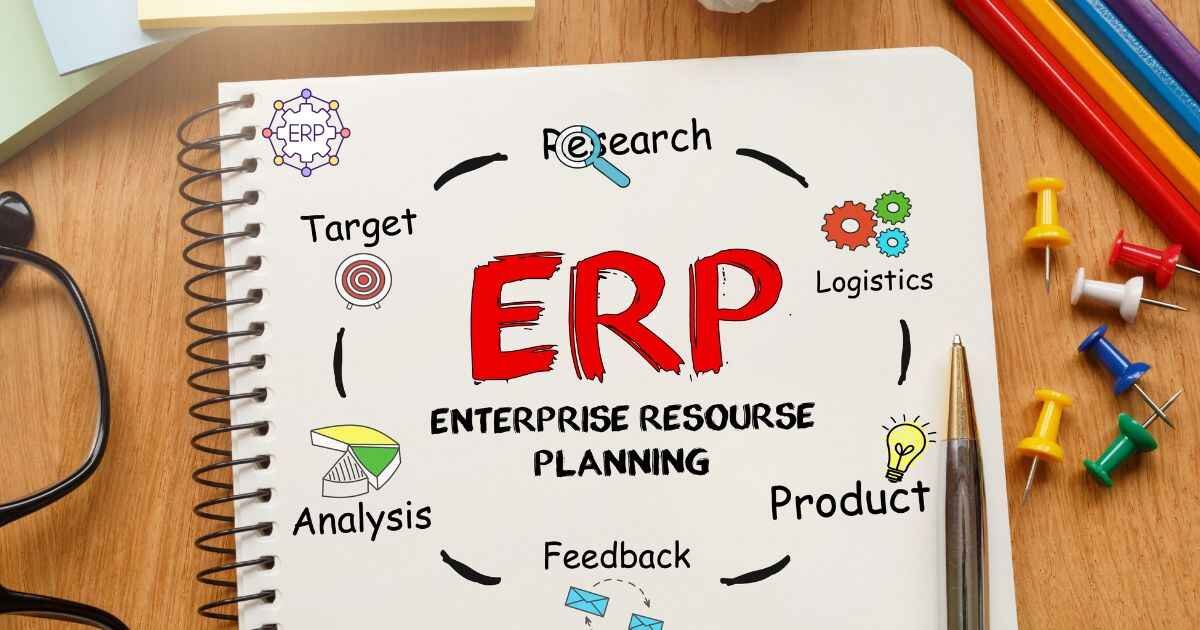Key Takeaways:
- Understanding the role of cloud-based ERP in modern business operations.
- Benefits of integrating ERP solutions into business workflows.
- Considerations for selecting an ERP system tailored to your business needs.
- Insight into industry-specific ERP applications.
- Identifying trends shaping the future of ERP technology.
- Guidance on selecting the ideal ERP partnership for long-term success.
The Rise of ERP in the Digital Age
Modern Undertakings progressively go to cloud-based ERP arrangements as an fantastic power to re-engineer their middle enterprise abilties and plan for what’s in keep. The automated age has added a exchange in outlook where distinct commercial enterprise methods unite on a stage, organising a certain collectively and smoothed out weather. A carefully organized talent like a NetSuite Consultant Expert may be the first-class technique to beginning the maximum extreme restriction of an ERP system, permitting institutions to facilitate their cycles in addition to accumulate imperative encounters that drive business development.
Cloud-based totally ERP plans address a tremendous improvement in massive enterprise the chiefs, presenting flexibility versatility and receptiveness like in no way before. By moving essential business capacities to the cloud, institutions can consolidate their statistics and sports, keeping apart storage facilities and developing joint exertion across workplaces.
Additionally, cloud ERP systems supply consistent records exam and putting forward limits, drawing in bosses with the portions of facts to power key drives. Using the dominance of an professional ensures that affiliations help the blessings in their ERP adventure, becoming the structure to their particular requirements and operating on its convenience. With the right ERP sport plan and heading, institutions can acclimate to changing monetary occasions, update utilitarian efficiency, and role themselves for upheld bring about the mechanized age.
Advantages of Cloud-Based ERP Over Traditional Systems
Migrating To cloud primarily based ERP frameworks from the customary on premise fashions offers convincing benefits that cutting part agencies ought to bear in mind Cloud ERP arrangements shun the requirement for essential forthright IT ventures and the regular renovation that on-premise frameworks request. This activates a efficient rate shape that can line up with any business length. Dissimilar to commonplace frameworks, cloud primarily based ERPs are intended for versatility permitting businesses to adjust their innovation speculation straightforwardly to their development course. This intrinsic versatility and the consolation of getting to basic enterprise frameworks from any place with internet availability gives an association unequalled readiness.
Besides, cloud-based ERP arrangements give upgraded safety efforts, including information encryption, standard reinforcements, and vigorous confirmation conventions, bringing down the risk of information spills and guaranteeing consistence with industry guidelines.The adaptability of cloud-based frameworks likewise empowers consistent coordination with different cloud administrations and applications, working with a strong automatic environment that drives performance and improvement.
Furthermore, cloud ERP arrangements frequently provide programmed programming updates and maintenance, making sure that undertakings can profit from the most up to date elements and security improvements without dealing with the bother of manual updates. In fashionable, the blessings of cloud-primarily based ERP over conventional frameworks stretch out a long approaches beyond cost reserve funds, enveloping deftness, versatility, protection, and improvement, making them imperative apparatuses for present day endeavors.
Key Features to Look for in an ERP Solution
When studying the scene for an ERP arrangement, organizations should cautiously consider a few highlights to guarantee their picked framework satisfies quick necessities and scales for future development.
The signs of a magnificent ERP framework include the accompanying:
- Customization and Adaptability: ERP arrangements permit organizations to shape their highlights to meet explicit functional necessities.
- Reconciliation Capacities: A framework that guarantees similarity with other business devices, giving a consistent and robotized stream of data across applications.
- Easy to understand Plan: A natural UI is fundamental to lessen the expectation to absorb information and encourage broad reception across divisions.
- Strong Help and Broad Preparation Assets: Admittance to a skilled encouraging group of people and vigorous preparation material is vital to exploring the difficulties that could emerge post-execution.
ERP Implementation Strategies for Success
Successful execution of an ERP framework is a complex cycle that requires constant preparation and key execution. Foster a succinct execution guide custom fitted to hierarchical objectives and impart it obviously to all partners. Appropriately moving existing information into the new framework is central, as is concentrating intently on thorough representative preparation programs. It’s frequently gainful to consider a staged rollout, presenting the ERP framework iteratively in stages to screen its effect and make vital changes without overpowering the labor force or upsetting business operations.
How ERP Systems Foster Collaboration and Efficiency
ERP systems are instrumental in advancing a culture of coordinated effort and divided vision by breaking down the boundaries among hierarchical units. By unifying the storehouse of business information, these frameworks guarantee that each colleague is working from a similar page, in this manner working with more compelling and convenient dynamic cycles. Besides, with an expansive outline of organization tasks, directors and leaders can recognize streamlining open doors and dispose of bottlenecks, upgrading generally speaking effectiveness and efficiency.
Industry-Specific Applications
ERP systems are not a one-size-fits-all arrangement; their genuine worth comes from their flexibility to suit different industry needs. Whether for an assembling undertaking requiring fastidious stock administration continuously or a help put together firm that depends with respect to modern client relationship the board devices, ERP programming can be exceptionally custom fitted to address explicit difficulties and robotize interesting cycles intrinsic to various areas.
Customizing ERP Systems to Industry-Specific Needs
ERP systems redone to address interesting industry requests can fundamentally lift their adequacy. For example, a medical care supplier might profit from an ERP module for patient record the board. Simultaneously, a retail business might use ERP for store network enhancement and retail location mix. A very much created ERP arrangement that lines up with an industry’s work process can turn into the foundation of functional greatness, giving the clearness and control fundamental for development in the cutting edge commercial center.
Future Trends in ERP Technology
Emerging ERP technology patterns keep rethinking the scene and capacities of big business frameworks. Man-made consciousness (computer based intelligence) and AI are staples for prescient examination, permitting organizations to expect market patterns and client conduct. Versatile ERP arrangements have seen an increase popular, underlining the need for business pioneers and staff to get to basic endeavor data in a hurry. With the mix of such innovations, ERP frameworks are ready to lift organizations to phenomenal degrees of refinement and seriousness.
Choosing the Right ERP Partner for Your Business
The success of an ERP system is vigorously dependent on the aptitude and nature of the execution accomplice. A careful choice cycle that assesses potential accomplices in light of their industry experience, the broadness of their help contributions, and a demonstrated history of executions can be instrumental in making a persevering and productive ERP venture. Solid organizations with ERP suppliers and inside and out information on the particular business climate are the foundations of an effective ERP technique.






